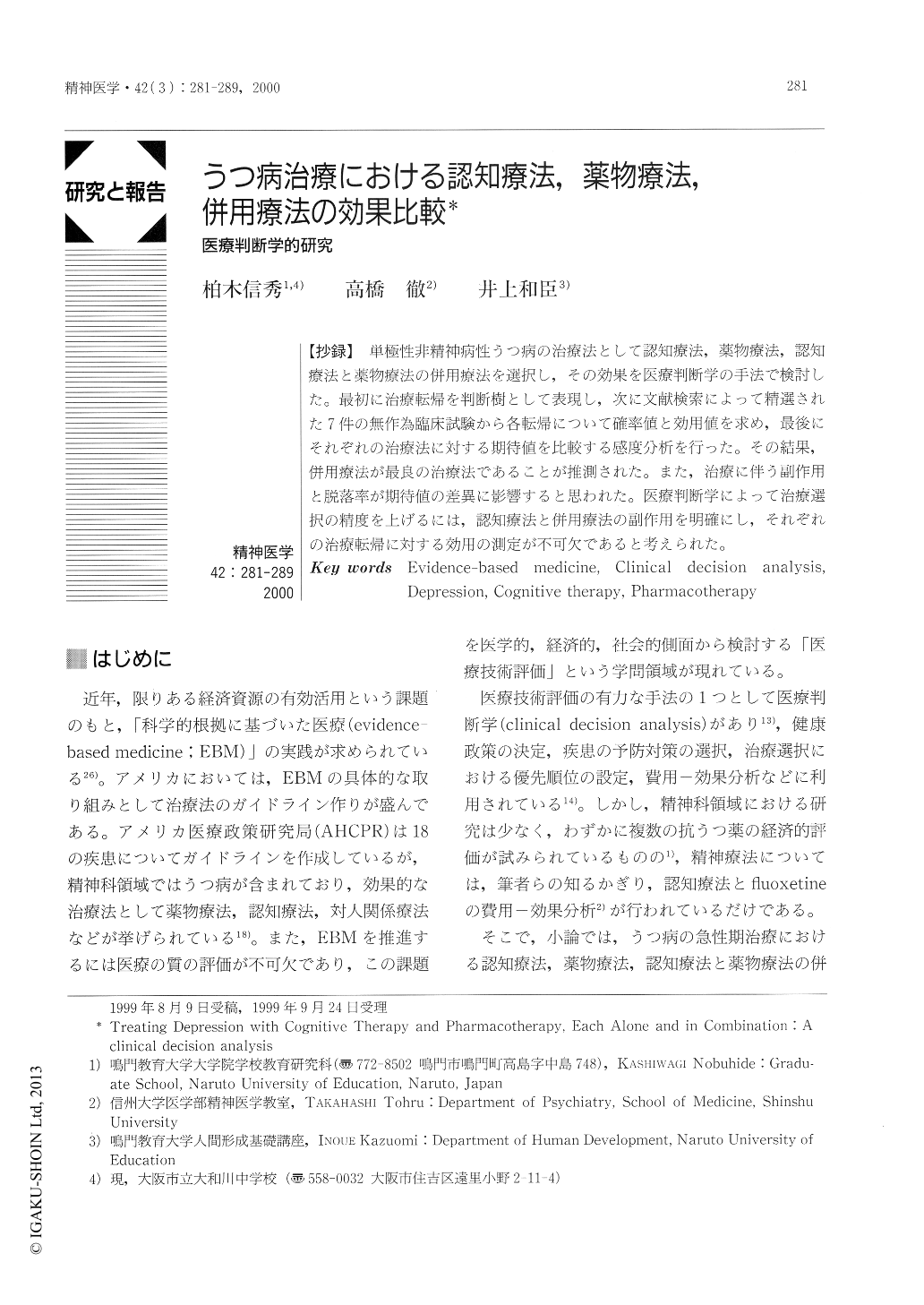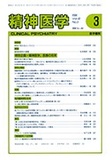Japanese
English
- 有料閲覧
- Abstract 文献概要
- 1ページ目 Look Inside
【抄録】 単極性非精神病性うつ病の治療法として認知療法,薬物療法,認知療法と薬物療法の併用療法を選択し,その効果を医療判断学の手法で検討した。最初に治療転帰を判断樹として表現し,次に文献検索によって精選された7件の無作為臨床試験から各転帰について確率値と効用値を求め,最後にそれぞれの治療法に対する期待値を比較する感度分析を行った。その結果,併用療法が最良の治療法であることが推測された。また,治療に伴う副作用と脱落率が期待値の差異に影響すると思われた。医療判断学によって治療選択の精度を上げるには,認知療法と併用療法の副作用を明確にし,それぞれの治療転帰に対する効用の測定が不可欠であると考えられた。
Background : Evidence-based medicine is an emerging concept among researchers and clinicians in the field of nonpsychiatric practice. A clinical decision based on analysis of reliable research data has not been fully reached concerning the effectiveness of psychiatric treatments.
Objectives : An attempt was made to investigate whether cognitive therapy, alone or in combination with pharmacotherapy, is to be recommended as the best treatment of unipolar depressed outpatients.
Methods : After a critical review of relevant literature, a decision tree for treating depression was built, comparing the following three strategies : cognitive therapy, pharmacotherapy, and a combination of both.
Results : Because utility values were not available in the psychotherapeutic literature, two-way sensitivity analysis was performed, revealing that a combination of cognitive therapy and pharmacotherapy might be superior to each treatment alone.
Conclusion : Combined cognitive and pharmacological therapy could be recommended for treating unipolar depression. Further data on utility values for possible health outcomes was required to confirm the present results.

Copyright © 2000, Igaku-Shoin Ltd. All rights reserved.


